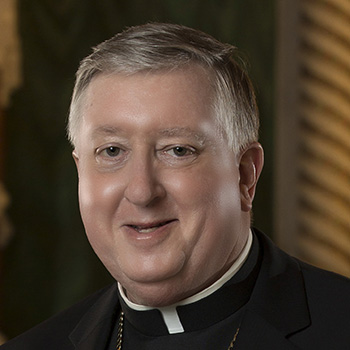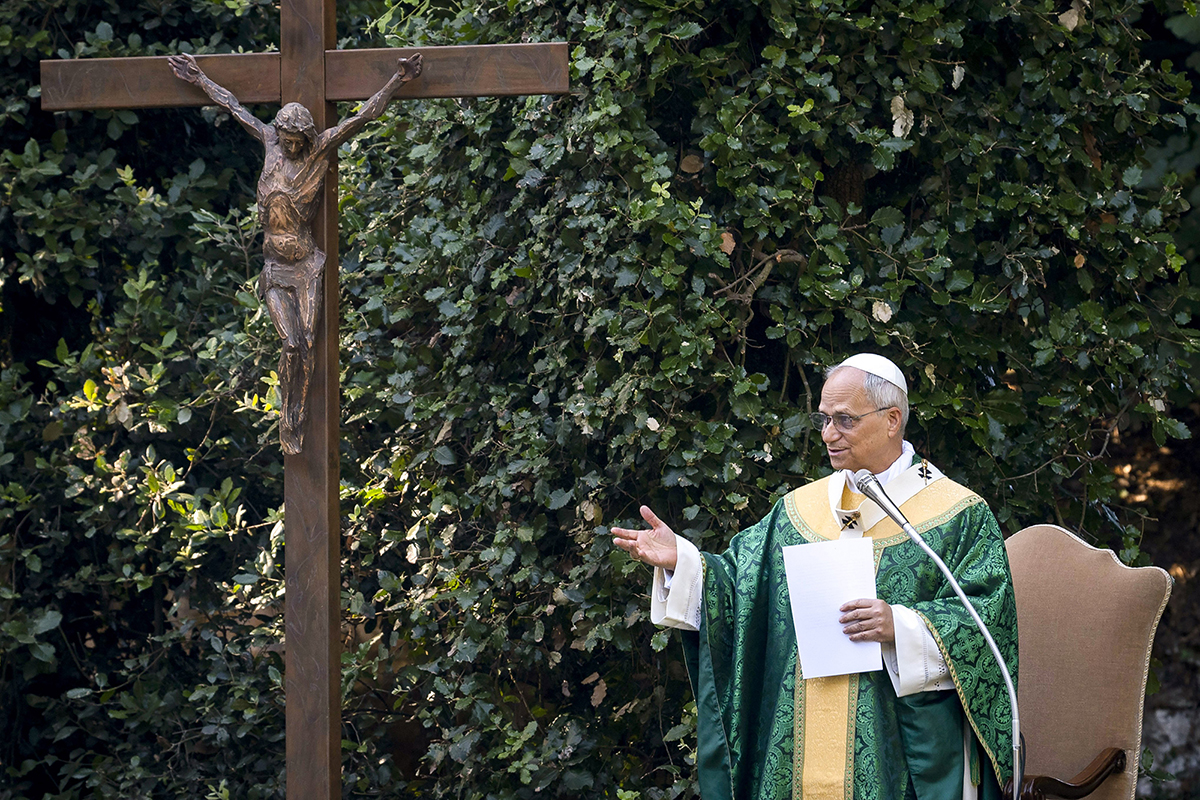SERVE THE LORD WITH GLADNESS | Consecrating our strengths, weaknesses more deeply to Christ
By opening our hearts to the Sacred Heart of Jesus — as Rose Philippine Duchesne did — we’ll experience our sadness and joy in the light of eternity

Dear brothers and sisters in Christ,
We celebrate the feast of St. Rose Philippine Duchesne — one of the patron saints of the archdiocese — this week on Nov. 18. We sure could use her prayers as we enter the next phase of All Things New! She wasn’t afraid to think big, and she wasn’t afraid to start small, and that same spirit would serve us well. More than anything, she wanted to love the people here with the love of the heart of Christ, and to make His love known to them. St. Rose Philippine Duchesne, pray for us!
As we approach the end of the liturgical year, we find ourselves reading from the Book of Revelation. The passages we read this week refer to a series of messages: “To the angel of the Church in Ephesus, write this…” Similar messages are sent to seven Churches. Each one names some particular strengths and/or weaknesses of that Church, and what they need to do to live in Christ more fully. It makes me wonder: If a message were sent to each of us, or to each of our parishes, or to our whole archdiocese, what would it say? “To the angel of the Church in St. Louis, write this…”
In the spiritual life, our strengths can work for us or against us; the same is true of our weaknesses. When we go through a time of stress — like a major transition — it’s a rule of the spiritual life that we’ll “get our buttons pushed” in both our strengths and our weaknesses. Maybe we could step back these days and ask: How is the process pressing on our strengths and weaknesses? Is it drawing the best out of both, or is it drawing the worst out of both? How might we consecrate both our strengths and our weaknesses more deeply to Christ as we go through the stress of transition?
Since the end of September, we’ve been reading the “travel narrative” of the Gospel of Luke — all the things that happened to Jesus on His way to Jerusalem (Luke 9-19). This week we reach the end of that narrative. Jesus arrives in Jerusalem. And one of the first things He does is to weep over the city. The destruction of Jerusalem still lies in its future. But here’s the thing: It’s present to Jesus. Because He’s God, all times are present to Him.
It might be fruitful to pray into that in these days of uncertainty. What we experience as the future — all the sadness of closing parishes and schools, all the excitement of concentrating our energy more deeply on the things that matter most, all the mistakes we’ll make in the process, and all the things we’ll get right — they’re in the future to us, but Jesus is already present to them.
If we open our hearts to the Sacred Heart of Jesus — as St. Rose Philippine Duchesne did — we’ll experience all our sadness and all our joy in the light of eternity. That can bring us some much needed peace in the midst of transition.





